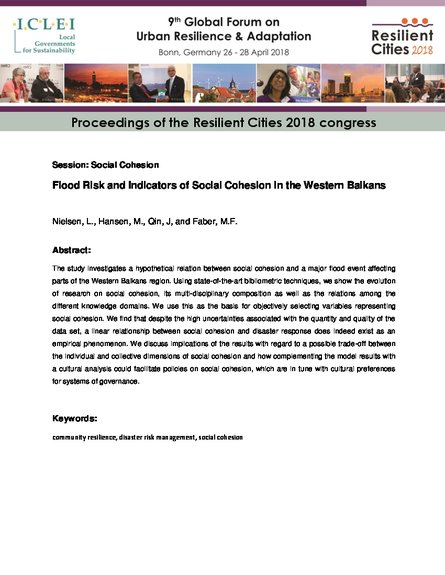
While the phenomenon of social cohesion is so old as to be considered part of human nature by thinkers as early as Aristotle, the term social cohesion itself has only in the past three decades been used by a small number of academics and a somewhat larger body of policy analysts to describe the ephemeral quality of social systems that keeps a system’s integrity, preventing its physical tendency toward disintegration, chaos and collapse. Social cohesion and resilience of social systems are intimately related concepts. Both have been subject to much academic speculation on how to define them, what constitutes them, what causes them, what consequences ensue as a result of their presence or absence, and what indicators best capture their dynamics. The present research is conducted as part of the EU Erasmus project Knowledge for Resilient Society (KFORCE) wherein a consortium of universities from the Western Balkans, two central European universities and three Scandinavian universities are working together to exchange and build new knowledge in the area of resilience and disaster risk management, with particular focus on educational activities
Links
Resource collections
- Evaluating humanitarian action
- Floods
- Learning from crises
- UN Habitat - Urban Response Collection
- Urban Response - Urban Crisis Preparedness and Risk Reduction
- Urban Response Collection - Community Engagement and Social Cohesion
- Urban Response Collection - Economic Recovery
- Urban Response Collection - Environment and Climate Change
- Urban Response Collection - Housing, Land and Property
- Urban Response Collection - Urban Crisis Response, Recovery and Reconstruction
- Urban Response Collection - Urban Resilience
